Home>diy>Building & Construction>What Is A Construction Superintendent
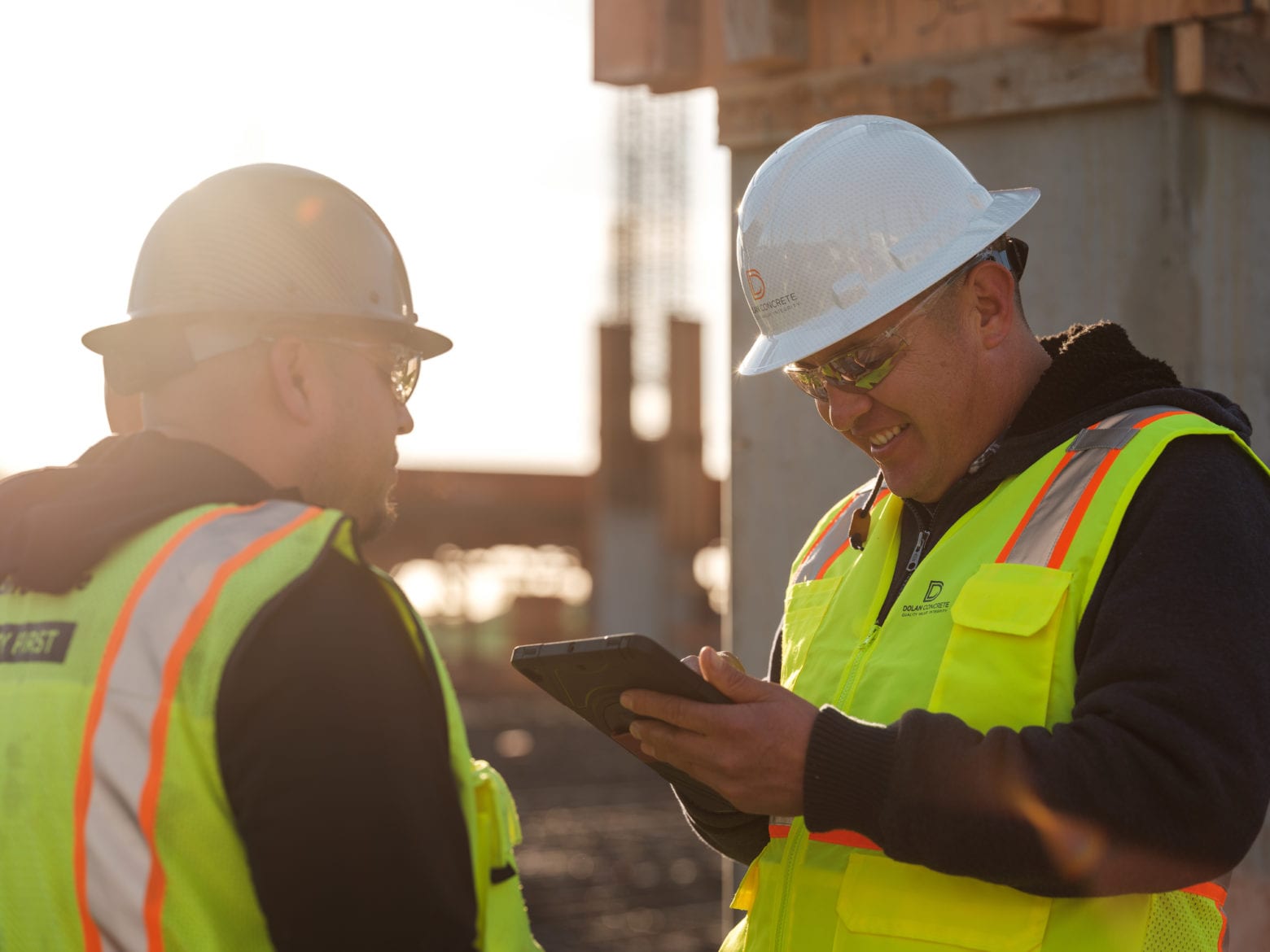

Building & Construction
What Is A Construction Superintendent
Modified: December 7, 2023
Discover the role and responsibilities of a Construction Superintendent in the building construction industry. Learn how they oversee projects and ensure successful completion.
(Many of the links in this article redirect to a specific reviewed product. Your purchase of these products through affiliate links helps to generate commission for Storables.com, at no extra cost. Learn more)
Introduction
Construction projects are complex endeavors that require the expertise of several professionals to ensure their successful completion. One of the most crucial roles in the construction industry is that of a Construction Superintendent. This article aims to provide a comprehensive understanding of who a Construction Superintendent is, the key responsibilities they hold, the qualifications and skills required for the role, and the daily tasks they undertake.
A Construction Superintendent is a highly skilled professional who oversees the entire construction process, from the planning stages to the final execution. They are responsible for managing the day-to-day operations on the construction site and ensuring that the project progresses smoothly, on schedule, and within budget.
Construction Superintendents play a vital role in coordinating the efforts of various stakeholders, including architects, engineers, subcontractors, and workers. They act as a bridge between the project team and the client, ensuring effective communication and collaboration throughout the construction process.
In addition to their managerial and organizational responsibilities, Construction Superintendents are also responsible for ensuring compliance with safety regulations and standards. Their expertise in project planning, problem-solving, and troubleshooting is crucial to resolving any issues that may arise during the construction process.
Overall, the role of a Construction Superintendent is demanding and requires a unique combination of technical knowledge, leadership skills, and a strong attention to detail. In the following sections, we will delve deeper into the definition of a Construction Superintendent, their roles and responsibilities, as well as the qualifications and skills necessary to excel in this position.
Key Takeaways:
- Construction Superintendents are crucial for successful construction projects, overseeing planning, resource management, safety compliance, and problem-solving. Their diverse skill set ensures smooth project progress and high-quality outcomes.
- Effective communication, team management, and proactive approach to safety and problem-solving are essential traits of Construction Superintendents. Their leadership and technical expertise drive the success of construction projects.
Read more: What Is A Superintendent In Construction
Definition of a Construction Superintendent
A Construction Superintendent is a highly skilled professional who oversees and manages all aspects of a construction project. They are responsible for ensuring that the project is completed on time, within budget, and to the required quality standards. The Construction Superintendent acts as a point of contact between the project team, subcontractors, suppliers, and the client.
The role of a Construction Superintendent can vary depending on the size and complexity of the project, as well as the specific requirements set by the client. However, their primary responsibility is to ensure the smooth execution of the construction process from start to finish. They must have a deep understanding of construction techniques, building codes, regulations, and safety standards to effectively manage the project.
Construction Superintendents work closely with architects, engineers, and other professionals involved in the project to interpret plans, resolve design issues, and make real-time decisions to keep the project on track. They also coordinate and supervise subcontractors, ensuring that work is being carried out as per specifications and within the agreed-upon timeline.
In addition to managing the on-site activities, Construction Superintendents also handle administrative tasks such as preparing progress reports, tracking project costs, and maintaining documentation. They are responsible for reviewing and approving subcontractor invoices and ensuring that all necessary permits and licenses are obtained.
Overall, a Construction Superintendent is a key figure in any construction project, with their primary focus being to ensure the successful completion of the project while meeting all quality, safety, and budgetary requirements. Their expertise in construction management, technical knowledge, and problem-solving skills are critical to overcoming challenges and delivering a successful construction project.
Roles and Responsibilities
A Construction Superintendent has a wide range of roles and responsibilities that encompass various aspects of project management and construction oversight. Here are some key responsibilities typically associated with the role:
- Project Planning: Construction Superintendents are involved in the initial project planning phase, collaborating with architects, engineers, and project managers to develop a comprehensive plan for the construction project. They analyze project requirements, create a schedule, and establish milestones and goals.
- Resource Management: Construction Superintendents are responsible for managing resources such as materials, equipment, and labor to ensure the project stays on schedule and within budget. They coordinate with suppliers and subcontractors to ensure the timely delivery of materials and equipment.
- Site Supervision: Construction Superintendents supervise all on-site construction activities, ensuring that work is being carried out according to plans, specifications, and quality standards. They conduct regular inspections to identify and address any issues or deviations from the plan.
- Coordination and Communication: Construction Superintendents act as a central point of contact for all project stakeholders, including architects, engineers, subcontractors, and the client. They facilitate effective communication and collaboration among the team members to keep everyone informed and ensure smooth project progress.
- Safety Compliance: Construction Superintendents are responsible for ensuring that all safety regulations and protocols are followed on the construction site. They implement safety measures, conduct safety meetings, and address any safety concerns to create a safe working environment for all workers and stakeholders.
- Problem-solving: Construction projects often encounter unforeseen challenges and obstacles. Construction Superintendents are expected to quickly analyze and resolve these issues to keep the project on track. This requires effective problem-solving skills and the ability to make informed decisions under pressure.
- Quality Control: Construction Superintendents are responsible for ensuring that the construction work meets the required quality standards. They conduct regular inspections, manage quality control processes, and address any deficiencies or deviations from the specifications.
- Documentation and Reporting: Construction Superintendents maintain detailed records and documentation related to the construction project. This includes progress reports, meeting minutes, change orders, and other essential documents. They also provide regular updates to project stakeholders on the project’s progress and milestones achieved.
These are just a few of the key roles and responsibilities of a Construction Superintendent. The position requires a diverse skill set, including strong leadership abilities, technical knowledge, excellent communication skills, and a keen attention to detail. Construction Superintendents are critical to the successful completion of construction projects, ensuring that the project is delivered on time, within budget, and to the highest quality standards.
Qualifications and Skills
To excel as a Construction Superintendent, individuals must possess a combination of qualifications and skills that are essential for effective project management and construction oversight. Here are some key qualifications and skills required for the role:
- Educational Background: A Bachelor’s degree in Construction Management, Civil Engineering, or a related field is typically preferred for the position of a Construction Superintendent. Relevant certifications, such as Certified Construction Manager (CCM) or Project Management Professional (PMP), can also be advantageous.
- Construction Experience: Extensive experience in the construction industry is crucial for a Construction Superintendent. Candidates should have a strong background in various construction methodologies, techniques, and building codes. Experience in managing complex construction projects is highly desirable.
- Leadership Skills: Construction Superintendents must possess strong leadership qualities to efficiently manage and motivate the project team. They should be able to delegate tasks, provide guidance, and resolve conflicts effectively. Leadership skills also include decision-making, problem-solving, and critical thinking abilities.
- Communication Skills: Excellent communication skills are essential for Construction Superintendents. They must be able to effectively communicate with project stakeholders, subcontractors, suppliers, and the project team. Strong written and verbal communication skills are necessary for conveying instructions, resolving issues, and maintaining clear and concise project documentation.
- Organizational Skills: Construction projects involve numerous tasks, deadlines, and stakeholders. Construction Superintendents must be highly organized and skilled in managing multiple priorities simultaneously. They must have the ability to create and maintain project schedules, track progress, and ensure timely completion of milestones.
- Technical Knowledge: A thorough understanding of construction techniques, building materials, and industry best practices is crucial for a Construction Superintendent. They must be familiar with reading and interpreting blueprints, specifications, and other construction-related documents. Knowledge of construction software and tools is also beneficial.
- Time and Budget Management: Construction Superintendents are responsible for ensuring that projects are completed within the established time frame and allocated budget. They must possess strong time management and budgeting skills to effectively plan and allocate resources to meet project deadlines and financial targets.
- Safety Consciousness: Safety is a top priority on construction sites. Construction Superintendents must have a thorough understanding of safety regulations and protocols, and they should prioritize the well-being of workers and stakeholders. They should be able to identify potential hazards, implement safety measures, and conduct regular safety inspections and meetings.
These qualifications and skills are essential for success as a Construction Superintendent. However, it is important to note that the specific requirements may vary depending on the project and the organization. Building strong relationships, being adaptable, and continually updating knowledge and skills are also crucial for professional growth in this field.
Daily Tasks
A Construction Superintendent’s day is filled with a variety of tasks that require coordination, communication, and efficient management to ensure the smooth progress of the construction project. Here are some typical daily tasks of a Construction Superintendent:
- Site Inspections: Construction Superintendents start their day by conducting site inspections to assess the progress of ongoing construction activities. They closely monitor the work being done, ensuring that it aligns with the project plans and specifications. They also identify any potential issues or safety hazards that need to be addressed promptly.
- Coordination Meetings: Construction Superintendents often participate in coordination meetings with architects, engineers, subcontractors, and other stakeholders. These meetings serve as a platform to discuss project updates, resolve any design or construction-related issues, and ensure everyone is on the same page regarding project goals and timelines.
- Scheduling and Planning: Construction Superintendents dedicate time to planning and scheduling tasks for the day, week, or even month. They allocate resources, set priorities, and coordinate activities to maintain an efficient workflow. They also update and adjust schedules as needed, considering factors such as weather conditions, material availability, and subcontractor progress.
- Supervision and Quality Control: Construction Superintendents closely supervise the work being done on the construction site, ensuring that it meets quality standards and is in line with approved plans and specifications. They provide guidance and instructions to subcontractors and other workers, clarifying any doubts or issues that arise during the construction process.
- Material and Equipment Management: Construction Superintendents are responsible for managing the procurement and delivery of construction materials and equipment. They coordinate with suppliers to ensure timely availability of materials on-site. They also oversee the proper storage and usage of materials to prevent waste and maintain inventory control.
- Progress Reporting: Construction Superintendents prepare progress reports on a regular basis to update project stakeholders on the status of the construction project. These reports include information on completed tasks, current challenges, and upcoming milestones. They may also include cost tracking and budget analysis for effective project management.
- Safety Compliance: Safety is a critical aspect of a Construction Superintendent’s daily tasks. They conduct safety inspections to identify potential hazards and ensure that all workers adhere to safety guidelines. They implement and enforce safety protocols, conduct safety meetings, and address any safety concerns promptly to maintain a safe working environment.
- Document Management: Construction Superintendents handle documentation related to the construction project. They maintain records of daily activities, such as weather conditions, site visits, and progress photos. They also manage documents such as permits, drawings, subcontractor agreements, and change orders to ensure accurate and up-to-date documentation.
These daily tasks require a combination of technical knowledge, managerial skills, and effective communication to ensure efficient construction project management. By diligently performing these tasks, Construction Superintendents contribute to the successful completion of the project, keeping it on schedule, within budget, and in compliance with quality and safety standards.
Team Management
Team management is a critical aspect of a Construction Superintendent’s role. As the leader of the construction project, it is their responsibility to effectively manage and coordinate the efforts of the project team, subcontractors, and suppliers. Here are some key components of team management for a Construction Superintendent:
- Leadership: Construction Superintendents provide leadership and guidance to the project team. They set clear expectations, establish goals, and motivate team members to perform their best. They lead by example, demonstrating professionalism and a strong work ethic.
- Team Building: Construction Superintendents foster a positive and collaborative team environment. They encourage open communication, trust, and mutual respect among team members. They promote teamwork and ensure that everyone understands their roles and responsibilities.
- Delegation: Construction Superintendents delegate tasks to the appropriate team members based on their skills and expertise. They ensure that work is distributed evenly and that each team member is accountable for their assigned tasks. They provide clear instructions and guidance to ensure quality and timely completion of work.
- Effective Communication: Construction Superintendents prioritize effective communication within the project team. They ensure that important information is shared promptly, both verbally and in writing. They hold regular meetings to discuss project updates, address concerns, and facilitate collaboration.
- Conflict Resolution: Construction projects may encounter conflicts and disputes among team members or with subcontractors. Construction Superintendents act as mediators to resolve conflicts in a fair and timely manner. They encourage open dialogue, listen to all parties involved, and work towards finding mutually beneficial solutions.
- Training and Development: Construction Superintendents identify areas where team members may need additional training or development. They provide guidance and support to help team members enhance their skills and knowledge. They also identify opportunities for professional growth and provide mentoring to team members to foster a culture of continuous learning.
- Performance Evaluation: Construction Superintendents assess the performance of team members regularly. They provide constructive feedback and recognize achievements. They identify areas for improvement and work with team members to establish development plans to enhance their performance.
- Relationship Management: Construction Superintendents build and maintain relationships with subcontractors, suppliers, and other stakeholders. They establish effective communication channels, negotiate contracts, and manage relationships to ensure a productive and collaborative work environment.
Effective team management ensures that the project team works cohesively towards the common goal of completing the construction project successfully. By fostering a positive team culture, promoting open communication, and providing leadership and support, Construction Superintendents can maximize team performance and achieve project milestones and objectives.
A construction superintendent is responsible for overseeing all aspects of a construction project, including scheduling, budgeting, and ensuring safety and quality standards are met. They are the on-site leader and point of contact for all project stakeholders.
Communication and Collaboration
Effective communication and collaboration are crucial for the success of a construction project, and it is the responsibility of the Construction Superintendent to facilitate this process. By establishing clear channels of communication and encouraging collaboration among all project stakeholders, a Construction Superintendent ensures that the project progresses smoothly and effectively. Here are some key elements of communication and collaboration for a Construction Superintendent:
- Clear and Timely Communication: Construction Superintendents act as the primary point of contact for communication on the construction site. They must ensure that all relevant information is effectively conveyed to and from the project team, subcontractors, suppliers, and the client. This includes providing updates, discussing changes in plans or specifications, and addressing any concerns or issues promptly.
- Regular Meetings and Discussions: Construction Superintendents conduct regular meetings and discussions to facilitate effective communication and collaboration. These meetings can include project kick-off meetings, progress meetings, safety meetings, and coordination meetings with subcontractors and suppliers. These gatherings provide an opportunity for all stakeholders to share updates, address concerns, and align their efforts towards project goals.
- Document Sharing and Management: Construction Superintendents ensure that all project-related documents, such as plans, specifications, permits, and contracts, are accessible to the relevant stakeholders. They establish efficient systems for document sharing and management, ensuring that everyone has access to the most up-to-date information. This helps avoid miscommunication and keeps everyone on the same page.
- Conflict Resolution: Construction projects may encounter conflicts or disagreements among team members or with subcontractors. Construction Superintendents play a crucial role in facilitating conflict resolution. They listen to all parties involved, encourage open dialogue, and work towards finding mutually agreeable solutions. Effective conflict resolution ensures that issues are addressed promptly and do not hinder project progress.
- Collaborative Decision-making: Construction Superintendents foster a collaborative decision-making environment, wherein all relevant stakeholders are involved in the decision-making process. They encourage input from team members, subcontractors, and other stakeholders, incorporating their expertise and perspectives to make informed decisions. This ensures that decisions are well-rounded and have buy-in from all parties involved.
- Subcontractor and Supplier Coordination: Construction Superintendents are responsible for coordinating and managing subcontractors and suppliers. They ensure effective communication with subcontractors, clarifying expectations, providing necessary information, and addressing any issues that may arise. They also maintain open lines of communication with suppliers to ensure timely delivery of materials and equipment.
- Client Communication: Construction Superintendents maintain regular communication with the client throughout the construction process. They provide updates on project progress, address any client concerns, and manage client expectations. Transparent and regular communication with the client fosters trust and ensures their satisfaction with the project.
- Technology Utilization: Construction Superintendents embrace the use of technology to enhance communication and collaboration. This may include project management software, mobile apps for documentation and communication, and digital tools for virtual meetings or remote collaboration. Leveraging technology can streamline communication, increase efficiency, and improve overall project coordination.
Effective communication and collaboration are essential for maintaining a cohesive project team, resolving issues promptly, and ensuring that everyone is working towards the same goals. Construction Superintendents who prioritize clear and timely communication, foster collaboration, and leverage technology can significantly contribute to the success of the construction project.
Safety Compliance
Safety is of paramount importance on any construction site, and it is the responsibility of the Construction Superintendent to ensure the highest level of safety compliance. Construction Superintendents play a crucial role in preventing accidents, maintaining a safe work environment, and ensuring that all workers and stakeholders adhere to safety regulations and protocols. Here are key aspects of safety compliance for a Construction Superintendent:
- Knowledge of Regulations and Standards: Construction Superintendents must have a comprehensive understanding of local, state, and federal safety regulations and industry standards. They stay updated on the latest safety requirements and ensure that all work conducted on-site complies with these regulations. They are responsible for disseminating safety information to all workers and ensuring ongoing compliance.
- Safety Planning and Implementation: Construction Superintendents develop and implement comprehensive safety plans for construction projects. This includes identifying potential hazards, assessing risks, and establishing protocols to mitigate them. They work closely with the project team and subcontractors to create a culture of safety and ensure that all individuals on the site are aware of and follow safety procedures.
- Safety Training and Education: Construction Superintendents provide safety training and education to all workers on the site. Training may include topics such as proper use of personal protective equipment (PPE), hazard recognition, fall protection, and emergency response procedures. They verify that workers have received appropriate training and ensure that safety measures are effectively communicated to all workers.
- Risk Assessment and Hazard Identification: Construction Superintendents conduct ongoing risk assessments and hazard identification to proactively identify potential safety risks. They regularly inspect the site to identify any unsafe conditions or practices and take prompt action to rectify them. They implement measures to prevent accidents, such as implementing guardrails, providing proper signage, and ensuring safe handling and storage of materials.
- Incident Reporting and Investigation: Construction Superintendents ensure that incidents and near-misses are reported promptly and thoroughly investigated. They document incidents, assess the root causes, and implement corrective actions to prevent similar occurrences in the future. They collaborate with the project team and relevant authorities to ensure compliance with reporting requirements.
- Safety Inspections and Audits: Construction Superintendents conduct regular safety inspections and audits to monitor compliance with safety requirements. They enforce safety standards and ensure that all workers are following safety procedures. They document findings, address any issues, and track corrective actions to maintain a safe working environment.
- Communication and Engagement: Construction Superintendents foster a culture of safety through clear communication and engagement. They conduct regular safety meetings to discuss safety-related matters and address any concerns or questions from workers. They actively engage workers in safety-related discussions and encourage their participation in safety improvement initiatives.
- Continuous Improvement: Construction Superintendents promote continuous improvement of safety practices on the construction site. They evaluate the effectiveness of safety programs and initiatives and seek feedback from workers and stakeholders. They identify opportunities for improvement and implement changes to enhance safety measures and prevent accidents.
By prioritizing safety compliance, Construction Superintendents contribute to the well-being of all workers on the site and help prevent accidents and injuries. Their dedication to creating a safe work environment drives productivity, reduces costs associated with accidents, and ensures the successful completion of construction projects.
Project Planning and Coordination
Project planning and coordination are fundamental aspects of a Construction Superintendent’s role. They are responsible for ensuring that all aspects of the construction project are meticulously planned and executed to achieve the desired outcomes. Effective project planning and coordination contribute to the successful completion of the project within the designated timeline and budget. Here are key elements of project planning and coordination for a Construction Superintendent:
- Defining Project Objectives: Construction Superintendents work closely with the project team and the client to understand the project objectives and requirements. They ensure that the project scope is clearly defined, and project goals are established. They consider factors such as budget, timeline, and quality expectations to establish a solid foundation for the construction project.
- Schedule Development: Construction Superintendents create a detailed project schedule that outlines the sequence of activities, milestones, and timelines. They consider various factors such as construction sequence, resource availability, and dependencies between tasks. They monitor and adjust the schedule as needed throughout the project to ensure that tasks are completed on time.
- Resource Allocation: Construction Superintendents are responsible for allocating resources efficiently to meet project requirements. They collaborate with the project team and subcontractors to determine the amount of labor, equipment, and materials needed for each phase of the project. They monitor resource usage, manage inventory, and ensure that resources are effectively utilized to avoid delays or overages.
- Permitting and Regulatory Compliance: Construction Superintendents ensure that all necessary permits, licenses, and regulatory requirements are obtained and adhered to throughout the construction project. They collaborate with the project team and local authorities to obtain the required permits and ensure compliance with building codes, environmental regulations, and safety standards.
- Material Procurement and Management: Construction Superintendents work closely with suppliers to procure materials and equipment for the construction project. They ensure that materials are ordered in a timely manner and meet the project specifications. They oversee the delivery, storage, and distribution of materials to the construction site, ensuring that the project progresses smoothly.
- Change Management: Construction projects often experience changes in scope, design, or other factors that may impact the project plan. Construction Superintendents manage these changes by assessing their impact, working with relevant stakeholders to develop solutions, and adjusting the project plan and schedule accordingly. They ensure that changes are documented, communicated, and implemented effectively.
- Coordination with Stakeholders: Construction Superintendents work closely with architects, engineers, subcontractors, suppliers, and the client to ensure effective coordination and collaboration throughout the project. They conduct coordination meetings, address issues, and ensure that everyone is aligned with the project goals. They facilitate communication channels to keep all stakeholders informed and engaged.
- Quality Control: Construction Superintendents are responsible for ensuring that the construction work meets the required quality standards. They implement quality control processes and conduct regular inspections to identify and address any deficiencies. They work closely with the project team and subcontractors to ensure that work is carried out to specifications and approved standards.
By carefully planning and coordinating all aspects of the construction project, Construction Superintendents play a vital role in ensuring the project progresses smoothly and achieves the desired outcomes. Their attention to detail, effective communication, and proactive management contribute to the successful completion of the construction project within the defined parameters.
Problem-solving and Troubleshooting
Problem-solving and troubleshooting are integral skills for a Construction Superintendent. Construction projects often encounter unexpected challenges and obstacles that require quick thinking and effective problem-solving to keep the project on track. Construction Superintendents play a critical role in identifying and resolving issues while minimizing disruptions to the construction process. Here are key elements of problem-solving and troubleshooting for a Construction Superintendent:
- Issue Identification: Construction Superintendents maintain a keen eye for identifying potential issues and risks on the construction site. They conduct regular site inspections, review project plans, and communicate with the project team and subcontractors to identify any deviations or challenges that may arise during the construction process.
- Analyzing Options: When faced with a problem or challenge, Construction Superintendents assess the available options and evaluate the potential impact and feasibility of each solution. They consider factors such as budget, timeline, safety, and quality to determine the best course of action.
- Collaborative Approach: Construction Superintendents foster collaboration to solve problems effectively. They gather input from the project team, subcontractors, and stakeholders to encourage diverse perspectives and generate innovative solutions. They facilitate discussions and decision-making processes that involve the relevant parties to ensure buy-in and collective ownership of the solution.
- Resourceful Solutions: Construction Superintendents utilize their knowledge, experience, and resources to find creative and resourceful solutions to problems. They tap into their network of industry professionals, consult with experts when needed, and explore alternative approaches to overcome challenges while adhering to project constraints.
- Risk Mitigation: Construction Superintendents proactively identify and assess potential risks and develop contingency plans to mitigate them. They anticipate challenges and implement preventive measures to minimize the impact of unforeseen events. They maintain a continuous focus on risk management throughout the construction process.
- Effective Decision-making: Construction Superintendents make informed and timely decisions to address issues that arise during the construction project. They consider available information, consult with relevant stakeholders, and prioritize the best interests of the project to make decisions that align with project goals.
- Communication and Documentation: Construction Superintendents communicate problem-solving efforts and solutions to the project team and stakeholders. They provide clear and concise updates, outline the actions taken, and document the decision-making process. This ensures transparency, aligns expectations, and helps to track progress.
- Continuous Improvement: Construction Superintendents use problem-solving experiences as opportunities for continuous learning and improvement. They conduct post-project evaluations, identify lessons learned, and implement changes to enhance future project performance. They actively seek feedback from the project team and stakeholders to identify areas for improvement.
By using their problem-solving and troubleshooting skills, Construction Superintendents tackle challenges that arise during the construction project. Their proactive and analytical approach, coupled with effective communication and collaboration, enables them to overcome obstacles and ensure a successful construction project.
Conclusion
A Construction Superintendent plays a vital role in the successful completion of a construction project. With their expertise in project management, technical knowledge, and leadership skills, they oversee and manage all aspects of the construction process. From project planning and coordination to team management, safety compliance, and problem-solving, Construction Superintendents are responsible for ensuring that the project progresses smoothly and achieves the desired outcomes.
Throughout this article, we have explored the different facets of a Construction Superintendent’s role. We have learned that they are responsible for defining project objectives, developing project plans, and coordinating resources. They excel in communication and collaboration, fostering a positive team environment and facilitating effective communication among stakeholders. Safety compliance is paramount, with Construction Superintendents ensuring that all workers adhere to safety regulations and protocols.
Construction Superintendents possess a diverse skill set, including leadership abilities, technical knowledge, and effective communication skills. They prioritize problem-solving and troubleshooting, identifying and resolving issues to keep the construction project on track. Their expertise in project planning and coordination ensures that tasks are completed on time and within budget, while maintaining quality standards.
In conclusion, the role of a Construction Superintendent is critical to the success of a construction project. Their ability to oversee operations, manage teams, and navigate challenges is paramount to delivering a high-quality construction project. With their leadership, technical expertise, and commitment to safety and problem-solving, Construction Superintendents ensure the smooth progress of construction projects, resulting in the successful completion of buildings that meet the client’s expectations.
Frequently Asked Questions about What Is A Construction Superintendent
Was this page helpful?
At Storables.com, we guarantee accurate and reliable information. Our content, validated by Expert Board Contributors, is crafted following stringent Editorial Policies. We're committed to providing you with well-researched, expert-backed insights for all your informational needs.
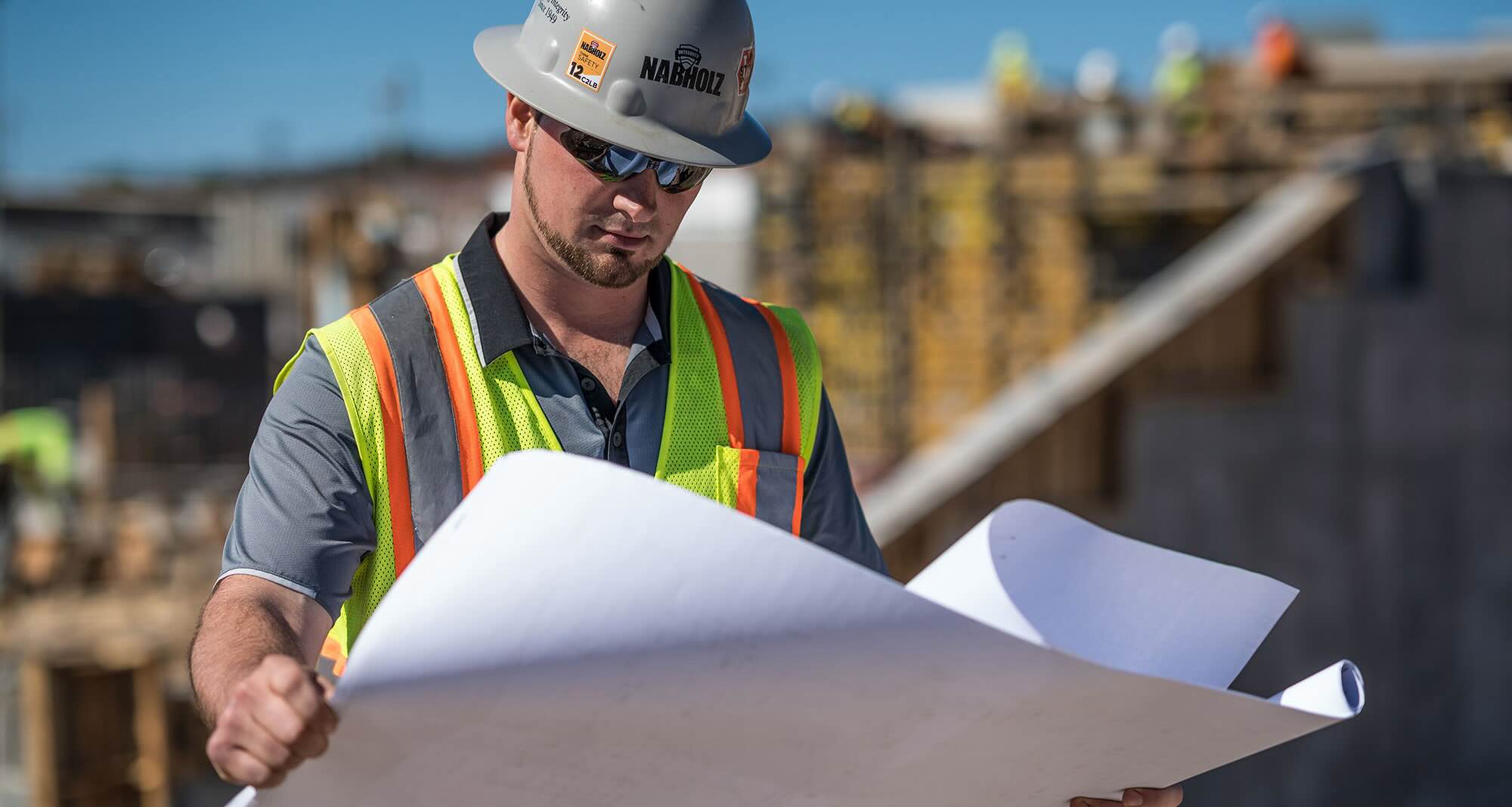
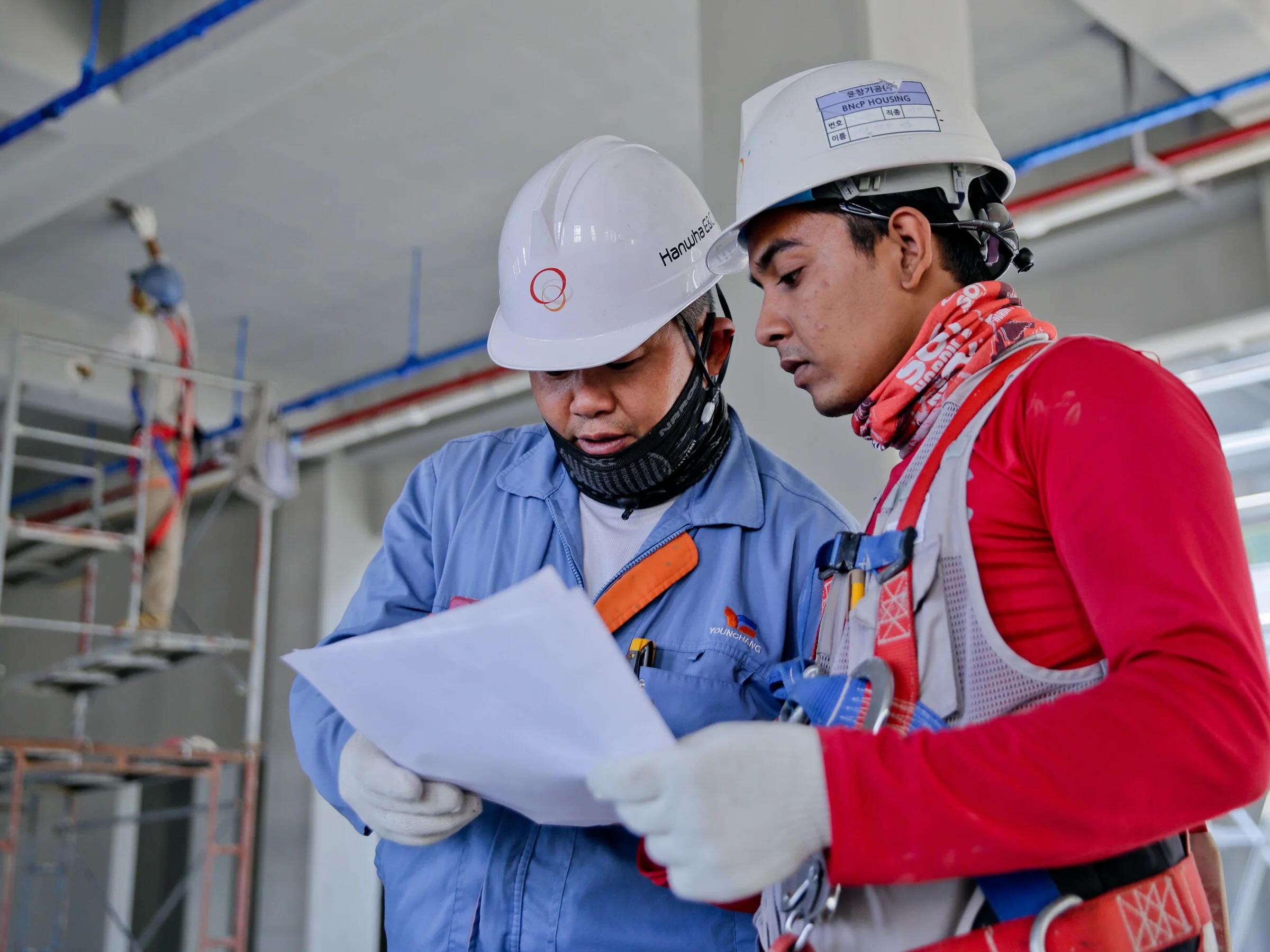
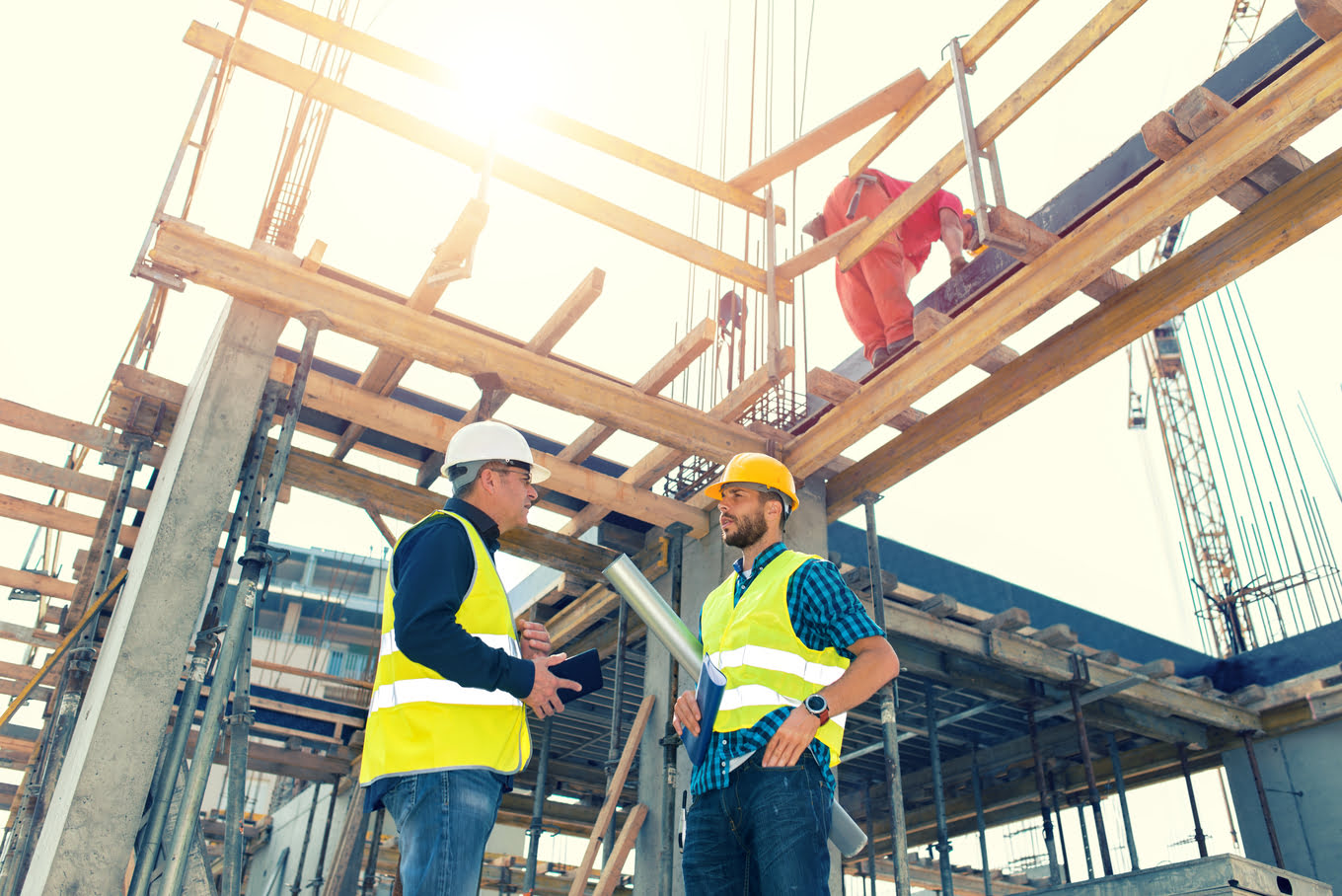

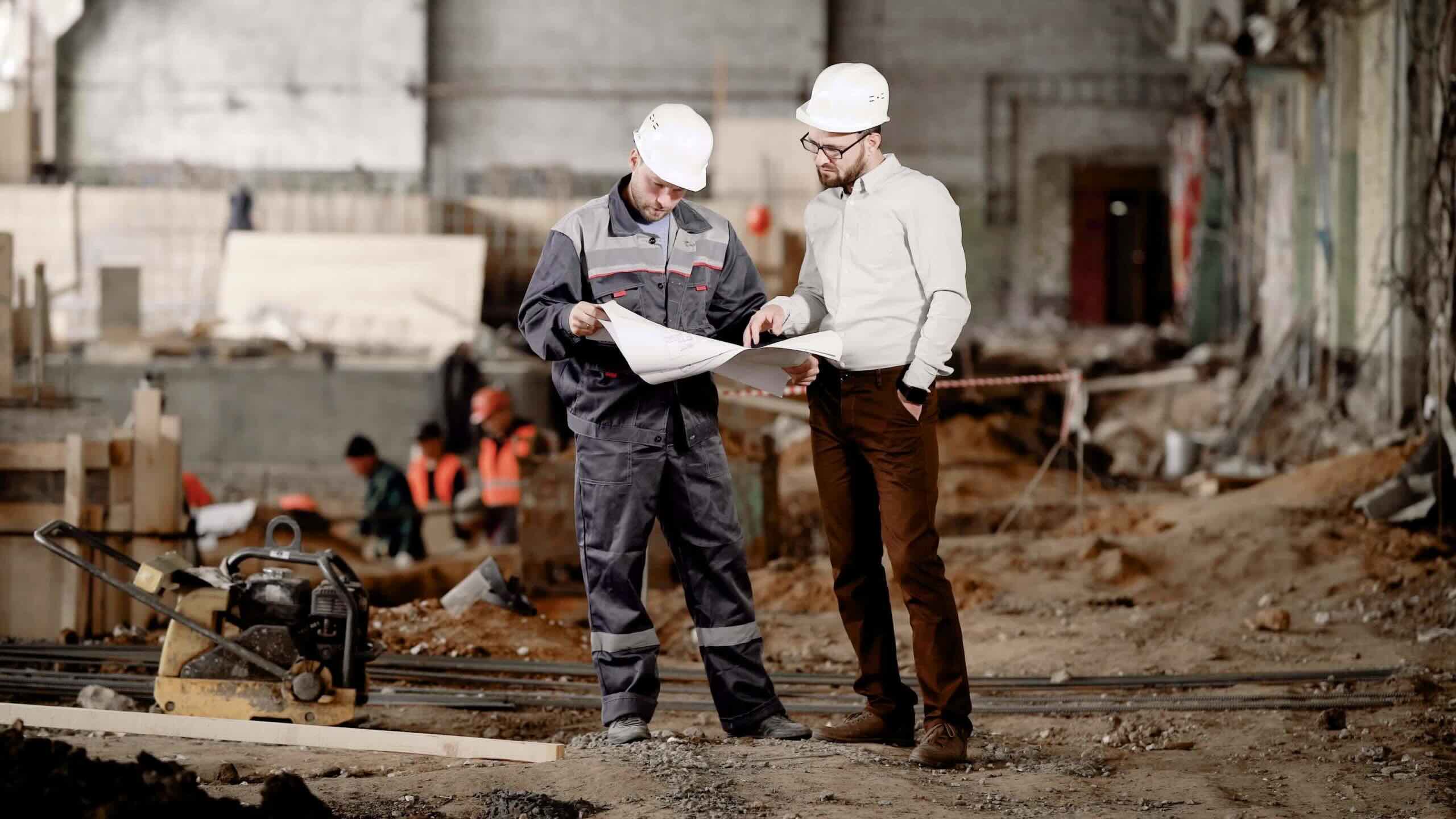
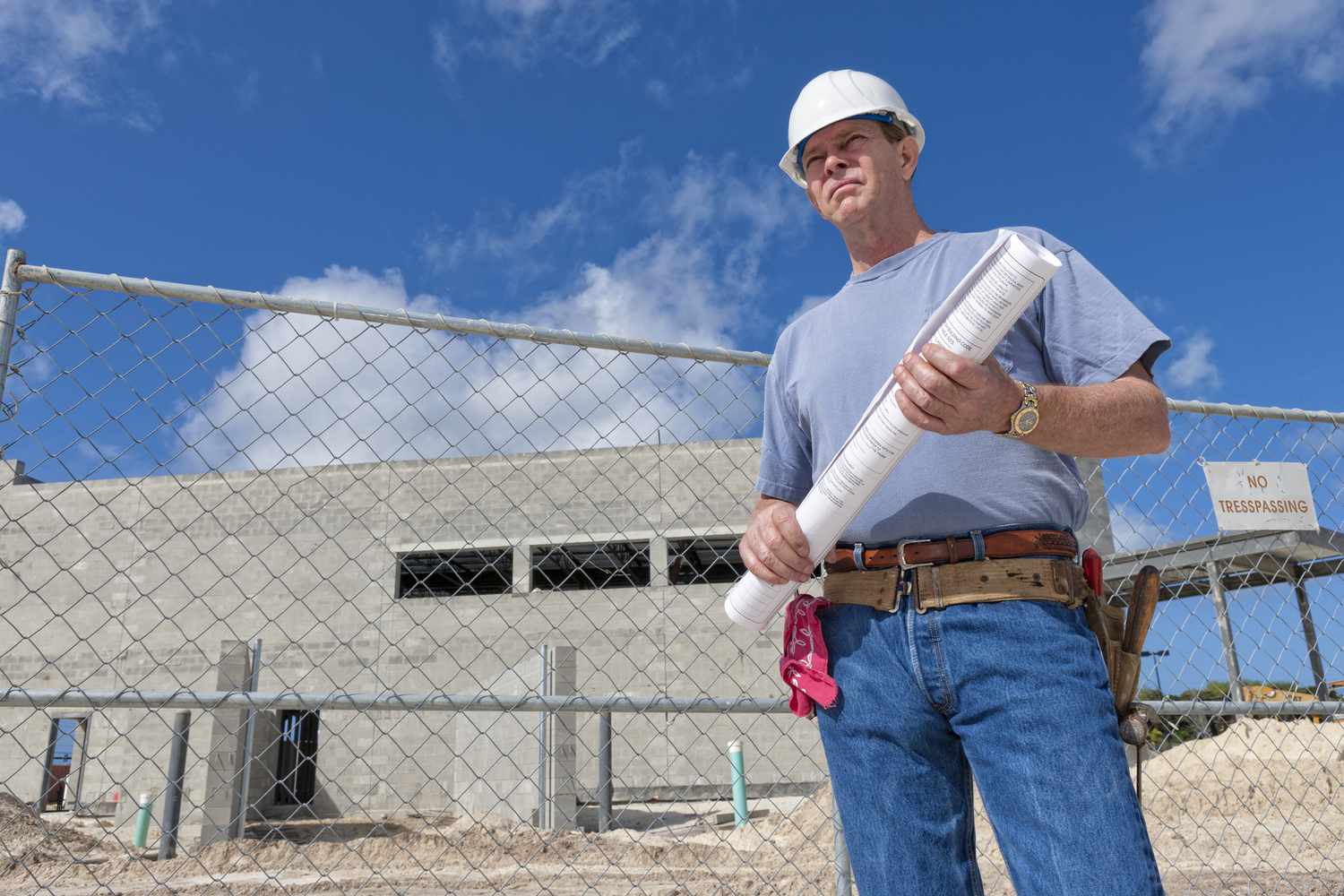

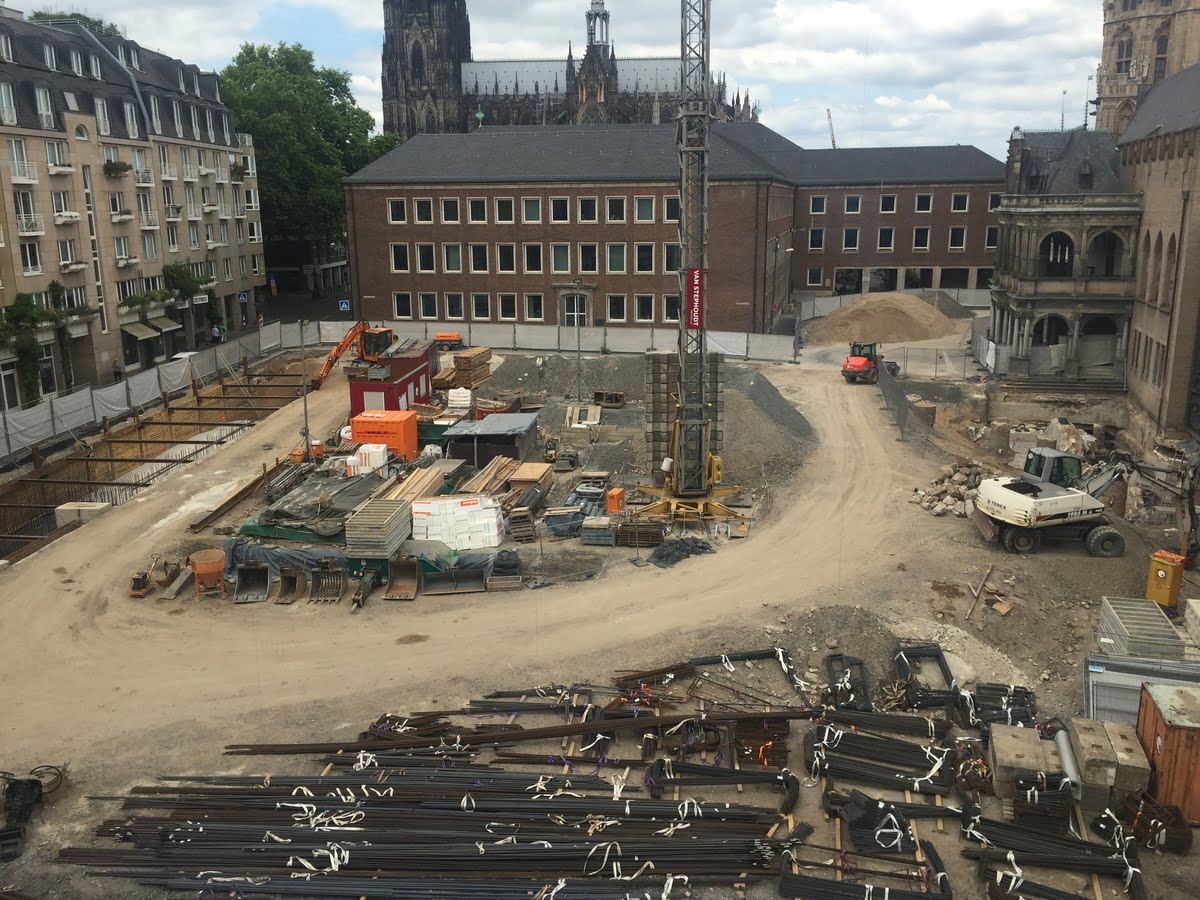
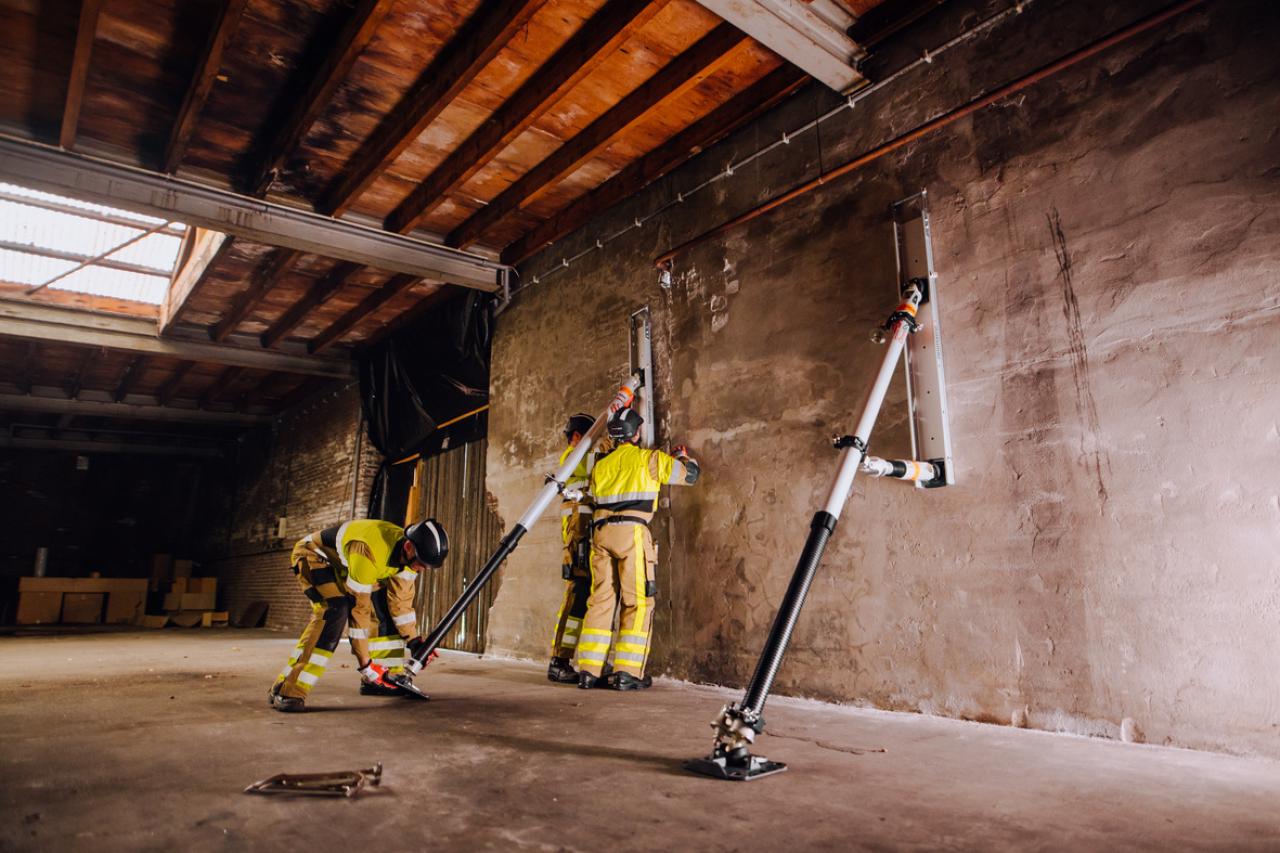

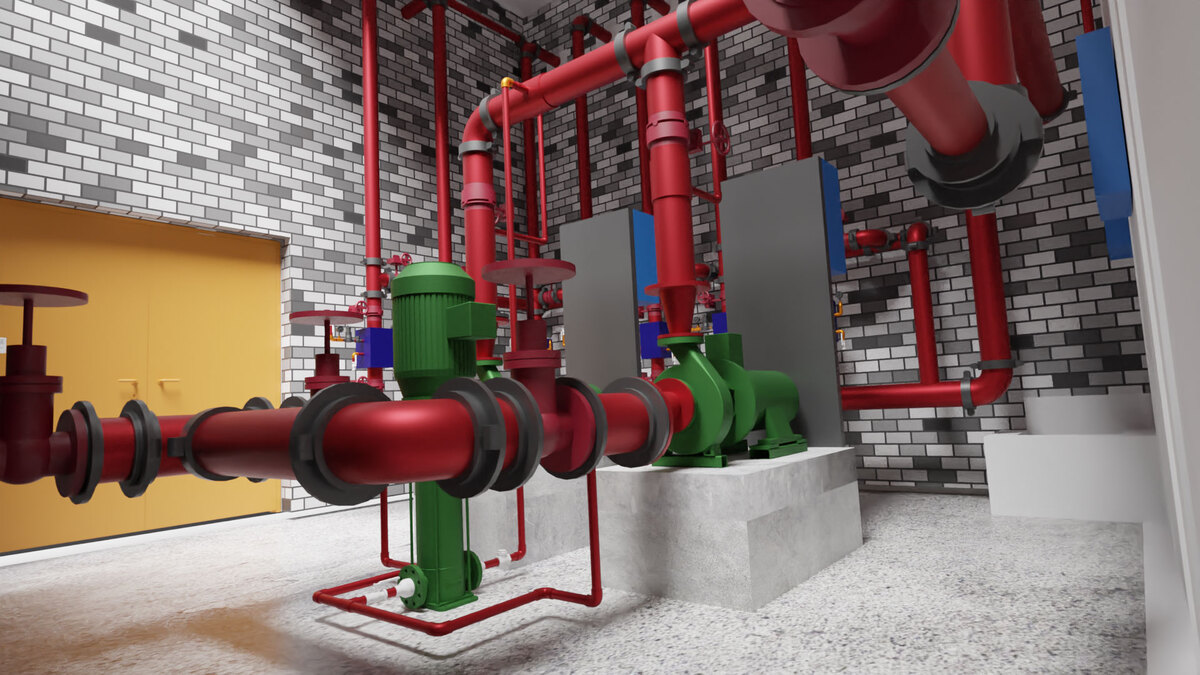



0 thoughts on “What Is A Construction Superintendent”